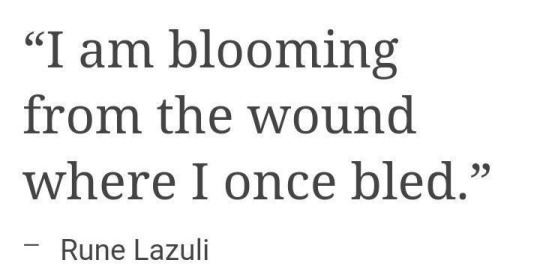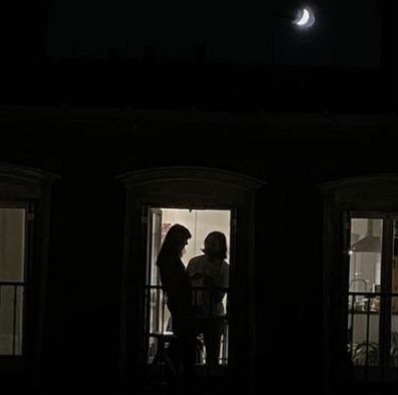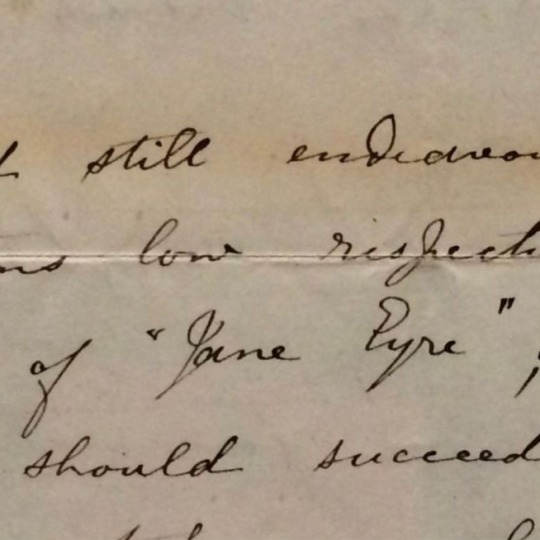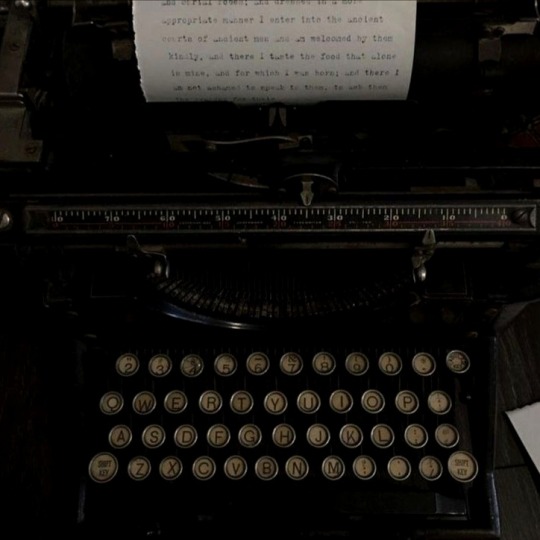#literary writeblr
Explore tagged Tumblr posts
Text

goldfinchwrites - a writeblr intro
Hello - I'm Lottie, and I'm making a tentative return to writeblr. I've been here on and off for years but I've missed it and thus am returning. A little about me:
I'm 26 years old, based in the UK and use she/her pronouns.
I'm been writing since I was 15, got my degree in English Literature and then last year completed a Master's in Creative Writing and am about to start my second degree in environmental science (!)
I like to write literary fiction most, but am partial to the gothic and including touches of horror and magical realism. I've also written a little poetry and am looking to return to it as well.
I have two finished manuscripts: one that I'm currently querying and another that's just sitting there and I'm considering getting beta readers for, and then at present I'm not really sure what I want to write now. Both of them are quite different in terms of tones and theme so it's become difficult to categorise what sort of fiction I like to write.
That said, things that tend to come up: the misery of small town England, particularly in the West Country/Cotswolds, country houses, the late 20th Century, queer themes, nature and the environment, and casts of very unlikable people.
I’m also very interested in hauntology and countercultural history.
The authors I'm presently most inspired by are Shirley Jackson, Donna Tartt, Elfriede Jelinek, Bret Easton Ellis, Carmen Maria Machado, Sayaka Murata, William Boyd and Evelyn Waugh, but, in essence, my reading taste is 20th Century Classics.
I’m currently working on what I call for a shorthand “seventies gothic.”
I'm looking to follow some writeblrs - especially litfic writeblrs, and dip my toe back into the community!
I also really don’t like people spam liking/otherwise interacting so please don’t. storygraph / bluesky / letterboxd / litfic writers discord
243 notes
·
View notes
Text

David Benioff, Troy
// Adapted from Homer, The Iliad
#homer#the illiad#writing#literature#books#booklr#writeblr#poem#poets on tumblr#poetry#spilled ink#spilled writing#spilled words#spilled poetry#spilled thoughts#words words words#words#love#memento mori#Troy#david benioff#literary quotes#classic#classic literature#dark aesthetic#dark academia#light academia#academia
21K notes
·
View notes
Text

- Vladimir Nabokov
#poetry#poets on tumblr#writers and poets#melancholic#soul#literature#classical literature#poems and poetry#writers on tumblr#dark academia#writer and poets#poems on tumblr#poetsandwriters#poems and quotes#poetic#poem#writing#writeblr#literary quotes#book quotes#quotes#vladimir nabokov#dark acamedia#dark acadamia aesthetic#literature academia#literature aesthetics#philosophy#book and libraries#classical books
16K notes
·
View notes
Text
yall gotta learn to separate "this character deserved better" (as in "this character has an intentionally tragic story that is supposed to feel bad") and "this character deserved better" (as in "this character had so much potential and was failed by the writer")
#writing#writer#writing things#writer things#writing stuff#writer stuff#reading#reader#reading things#reader things#reading stuff#reader stuff#readingblr#readerblr#writingblr#writerblr#writeblr#writblr#readblr#bookblr#books and reading#writers on tumblr#writerscommunity#creative writing#writing life#writers life#writers community#book things#book stuff#literary analysis
7K notes
·
View notes
Text

Sylvia Plath
@skyrigel
#sylvia plath#aesthetic#books#literature#litrature#writing#dark academia#book qoute#literary quotes#love quotes#spilled writing#spilled poetry#spilled ink#spilled thoughts#life qoute#romance#romantic academia#love qoute#self care#self love#writeblr#desiblr#desi tumblr#quoteoftheday#heycallmeplease
14K notes
·
View notes
Text
How To Make Your Writing Less Stiff 5
Movement
Dredging this back up from way back.
Make sure your characters move, but not too much during heavy dialogue scenes. E.g. two characters sitting and talking—do humans just stare at each other with their arms lifeless and bodies utterly motionless during conversation? No? Then neither should your characters. Make them…
Gesture
Wave
Frown
Laugh
Cross their legs/their arms
Shift around to get comfortable
Pound the table
Roll their eyes
Point
Shrug
Touch their face/their hair
Wring their hands
Pick at their nails
Yawn
Stretch
Sniff/sniffle
Tap their fingers/drum
Bounce their feet
Doodle
Fiddle with buttons or jewelry
Scratch an itch
Touch their weapons/gadgets/phones
Check the time
Get up and sit back down
Move from chair to tabletop
The list goes on.
Bonus points if these are tics that serve to develop your character, like a nervous fiddler, or if one moves a lot and the other doesn’t—what does that say about the both of them? This is where “show don’t tell” really comes into play.
As in, you could say “he’s nervous” or you could show, “He fidgets, constantly glancing at the clock as sweat beads at his temples.”
This site is full of discourse on telling vs showing so I’ll leave it at that.
Epithets
In the Sci-fi WIP that shall never see the light of day, I had a flashback arc for one male character and his relationship with another male character. On top of that, the flashback character was a nameless narrator for Reasons.
Enter the problem: How would you keep track of two male characters, one who you can't name, and the other who does have a name, but you can’t oversaturate the narrative with it? I did a few things.
Nameless Narrator (written in 3rd person limited POV) was the only narrator for the flashback arc. I never switched to the boyfriend’s POV.
Boyfriend had only a couple epithets that could only apply to him, and halfway through their relationship, NN went from describing him as “the other prisoner” to “his cellmate” to “his partner” (which was also a double entendre). NN also switched from using BF’s full name to a nickname both in narration and dialogue.
BF had a title for NN that he used exclusively in dialogue, since BF couldn’t use his given name and NN hadn’t picked a new one for himself.
Every time the subject of the narrative switched, I started a new paragraph so “he” never described either character ambiguously mid-paragraph.
Is this an extreme example? Absolutely, but I pulled it off according to my betas.
The point of all this is this: Epithets shouldn’t just exist to substitute an overused name. Epithets de-personalize the subject if you use them incorrectly. If your narrator is thinking of their lover and describing that person without their name, then the trait they pick to focus on should be something equally important to them. In contrast, if you want to drive home how little a narrator thinks of somebody, using depersonalizing epithets helps sell that disrespect.
Fanfic tends to be the most egregious with soulless epithets like "the black-haired boy" that tell the reader absolutely nothing about how the narrator feels about that black-haired boy, espeically if they're doing so during a highly-emotional moment.
As in, NN and BF had one implied sex scene. Had I said “the other prisoner” that would have completely ruined the mood. He’s so much more than “the other prisoner” at that point in the story. “His partner,” since they were both a combat team and romantically involved, encompassed their entire relationship.
The epithet also changed depending on what mood or how hopeless NN saw their situation. He’d wax and wane over how close he believed them to be for Reasons. NN was a very reserved character who kept BF at a distance, afraid to go “all in” because he knew there was a high chance of BF not surviving this campaign. So NN never used “his lover”.
All to say, epithets carried the subtext of that flashback arc, when I had a character who would not talk about his feelings. I could show you the progression of their relationship through how the epithets changed.
I could show you whenever NN was being a big fat liar about his feelings when he said he's not in love, but his narration gave him away. I could show you the exact moment their relationship shifted from comrades to something more when NN switched mid-paragraph from "his cellmate" to "his partner" and when he took up BF's nickame exclusively in the same scene.
I do the same thing in Eternal Night when Elias, my protagonist, stops referring to Dorian as "it" and "the vampire" instead of his name the moment they collide with a much more dangerous vampire, so jarringly that Elias notices in his own narration—the point of it being so explicit is that this degredation isn't automatic, it's something he has to conciously do, when everyone else in his clan wouldn't think twice about dehumanizing them.
—
Any literary device should be used with intent if you want those layers in your work. The curtains are rarely just blue. Whether it’s a simile with a deliberate comparison or an epithet with deliberate connotations, your readers will pick up on the subtext, I promise.
#writing#writing advice#writing a book#writing resources#writeblr#writing tips#writing tools#literary devices#character description#character development
4K notes
·
View notes
Text




#poetry#poets on tumblr#writers and poets#melancholic#soul#literature#classical literature#poems and poetry#writers on tumblr#dark academia#writer and poets#poems on tumblr#poetsandwriters#poems and quotes#poetic#poem#book and libraries#book quotes#books and reading#dark acamedia#dark acadamia aesthetic#literature academia#literary quotes#chaotic academia#light academia#book aesthetic#philosophy#writeblr#writing
5K notes
·
View notes
Text










I’m traveling to north Texas with my dad to say goodbye to a dying relative. I’m here to support my dad. I haven’t been able to think about it yet
#writing#academia#aesthetic#classic literature#on loneliness#web weaving#academia aesthetic#spilled poetry#poets on tumblr#writeblogging#writer stuff#web weave#web writing#writeblr#writers on tumblr#writers and poets#writerscommunity#french literature#russian literature#literary quotes#books and libraries#romantic literature#greek literature#english literature#literature#poetic#poem#poetry#quotes#moodboard
766 notes
·
View notes
Text
"I was looked at,
but I wasn't seen."
Albert Camus, The misunderstanding.
#quotes#life quotes#literature#quoteoftheday#life#booklr#relatable quotes#book quotes#bookworm#thoughts#spilled thoughts#albert camus#camus#literary quotes#writeblr#writing#words#thinking#french literature#philosophy#bookblr#bookish#misunderstandings#poetic#poetry#qotd#spilled ink#spilled words#spilled writing#words words words
4K notes
·
View notes
Text
"What do you want?"
"I want to want you, need you, see you, hear you, breathe you, feel you, own you, kiss you, fight you and most of all, I want to love you."
#literature#original post#writing#books & libraries#emotions#literary quotes#writers on tumblr#original writing#confession#writerscommunity#love quote life quotes#valentines day#love quote tumblr#love quotes#conversation#quoteoftheday#feelingsoftheday#feelings#spilled poetry#spilled in poetry#spilled words#spilled thoughts#spilled ink#spilled writing#writer stuff#writers and poets#writing space#writeblr#love qoute#love
688 notes
·
View notes
Text

#tired of life#im really tired#letters#poets on tumblr#typography#poetry#literature#poetry literature#quotations#quoteoftheday#god#emotion#writing life#creative writing#writers on tumblr#writers#writing#writeblr#writers and poets#writerscommunity#little space#lit#literate rp#quotes#prose#literary quotes#poetic#poem#poetsandwriters#poetscommunity
947 notes
·
View notes
Text

#booklr#books#literature#writing#writeblr#poem#poetry#poets on tumblr#spilled ink#love#jane austen#literary quotes#classics#classic#classical literature#feelings#dark academia#dark aesthetic#light academia#academia#language#spilled writing#spilled poetry#spilled words#spilled thoughts#words words words#words#bookblr#books and reading#reading
625 notes
·
View notes
Text

- Sylvia Plath
#poetry#poets on tumblr#writers and poets#melancholic#soul#literature#classical literature#poems and poetry#writers on tumblr#dark academia#writer and poets#poems on tumblr#poetsandwriters#poems and quotes#poetic#poem#sylvia plath#book and libraries#book quotes#books and reading#dark acamedia#dark acadamia aesthetic#literature academia#literary quotes#chaotic academia#light academia#book aesthetic#philosophy#writeblr#writing
9K notes
·
View notes
Text
"In a time of deceit, telling the truth is a revolutionary act."
— George Orwell
#quotes#book quotes#literary quotes#quoteoftheday#book quote#life quote#us politics#politics#writers#writing#spilled writing#writeblr#creative writing#writers on tumblr#writers and poets#writerscommunity#lit#literature#poetry#prose#bookblr#books and reading#books#booklr#reading#george orwell#orwell 1984#government#us government#us govt
614 notes
·
View notes
Text






There are all kinds of love in this world but never the same love twice.
- F. Scott Fitzgerald
#pics from pinterest#chaotic academia#spilled words#spilled ink#qoutes#booklr#reading#classic academia#books and libraries#dark academia#light academia#literature#classic literature#literary#english literature#dark academism#book qoutes#writeblr#book quotes#old books#bookish#books books books#poetry#poetic#poem#spilled poetry#spilled writing#dark cottagecore#romanticism#bookstores
4K notes
·
View notes
Text
How to make your writing sound less stiff part 2
Part 1
Again, just suggestions that shouldn’t have to compromise your author voice, as I sit here doing my own edits for a WIP.
1. Crutch words
Specifically when you have your narrator taking an action instead of just… writing that action. Examples:
Character wonders/imagines/thinks/realizes
Character sees/smells/feels
Now not all of these need to be cut. There’s a difference between:
Elias stops. He realizes they’re going in the wrong direction.
And
Elias takes far too long to realize that it’s not horribly dark wherever they are
Crutch words are words that don’t add anything to the sentence and the sentence can carry on with the exact same meaning even if you delete it. Thus:
Elias stops. They’re going in the wrong direction.
I need a word in the second example, whether it’s realizes, understands, or notices, unless I rework the entire sentence. The “realization” is implied by the hard cut to the next sentence in the first example.
2. Creating your own “author voice”
Unless the tone of the scene demands otherwise, my writing style is very conversational. I have a lot of sentence fragments to reflect my characters’ scatterbrained thoughts. I let them be sarcastic and sassy within the narration. I leave in instances of “just” (another crutch word) when I think it helps the sentence. Example:
…but it’s just another cave to Elias.
Deleting the “just” wouldn’t hit as hard or read as dismissive and resigned.
I may be writing in 3rd person limited, but I still let the personalities of my characters flavor everything from the syntax to metaphor choices. It’s up to you how you want to write your “voice”.
I’ll let dialogue cut off narration, like:
Not that he wouldn’t. However, “You can’t expect me to believe that.”
Sure it’s ~grammatically incorrect~ but you get more leeway in fiction. This isn’t an essay written in MLA or APA format. It’s okay to break a few rules, they’re more like guidelines anyway.
3. Metaphor, allegory, and simile
There is a time and a place to abandon this and shoot straight because oftentimes you might not realize you’re using these at all. It’s the difference between:
Blinding sunlight reflects off the window sill
And
Sunlight bounces like high-beams off the window sill
It’s up to you and what best fits the scene.
Sometimes there’s more power in not being poetic, just bluntly explicit. Situations like describing a character’s battle wounds (whatever kind of battle they might be from, whether it be war or abuse) don’t need flowery prose and if your manuscript is metaphor-heavy, suddenly dropping them in a serious situation will help with the mood and tonal shift, even if your readers can’t quite pick up on why immediately.
Whatever the case is, pick a metaphor that fits the narrator. If my narrator is comparing a shade of red to something, pick a comparison that makes sense.
Red like the clouds at sunset might make sense for a character that would appreciate sunsets. It’s romantic but not sensual, it’s warm and comforting.
Red like lipstick stains on a wine glass hints at a very different image and tone.
Metaphor can also either water down the impact of something, or make it so much worse so pay attention to what you want your reader to feel when they read it. Are you trying to shield them from the horror or dig it in deep?
4. Paragraph formatting
Nothing sticks out on a page quite like a line of narrative all by itself. Abusing this tactic will lessen its effect so save single sentence paragraphs for lines you want to hammer your audiences with. Lines like romantic revelations, or shocking twists, or characters giving up, giving in. Or just a badass line that deserves a whole paragraph to itself.
I do it all the time just like this.
Your writing style might not feature a bunch of chunky paragraphs to emphasize smaller lines of text (or if you’re writing a fic on A03, the size of the screen makes many paragraphs one line), but if yours does, slapping a zinger between two beefy paragraphs helps with immersion.
5. Polysyndeton and Asyndeton
Not gibberish! These, like single-sentence paragraphs, mix up the usual flow of the narrative that are lists of concepts with or without conjunctions.
Asyndeton: We came. We saw. We conquered. It was cold, grey, lifeless.
Polysyndeton: And the birds are out and the sun is shining and it might rain later but right now I am going to enjoy the blue sky and the puffy white clouds like cotton balls. They stand and they clap and they sing.
Both are for emphasis. Asyndeton tends to be "colder" and more blunt, because the sentence is blunt. Polysyntedon tends to be more exciting, overwhelming.
We came and we saw and we conquered.
The original is rather grim. This version is almost uplifting, like it's celebrating as opposed to taunting, depending on how you look at it.
—
All of these are highly situational, but if you’re stuck, maybe try some out and see what happens.
*italicized quotes are from ENNS, the rest I made up on the spot save for the Veni Vidi Vici.
#writing#writing advice#writing resources#writing a book#writing tips#writing tools#writeblr#for beginners#sentence structure#book formatting#literary devices
2K notes
·
View notes